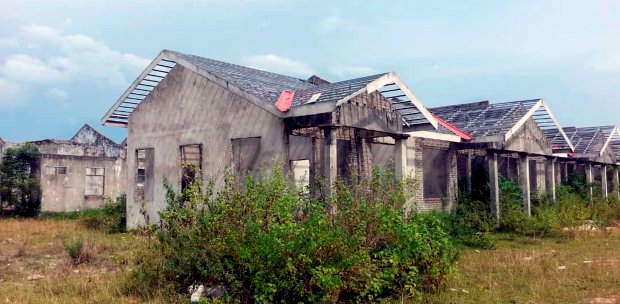KUALA LUMPUR: A TWO-decade old dormant regulation has been "resurrected" to make it mandatory for all new developments covering housing and hotels to install water heaters with enhanced safety features.
Clause 36(2) of the Electricity Regulation 1994, which falls under the Electricity Supply Act 1990, had not been enforced all the while and authorities believe it could have played a part in the spate of short circuit and electrocution incidents through the years.
Energy Commission's Department of Electrical Safety Regulation director, Abdul Rahim Ibrahim, said a directive for developers to install external residual-current circuit breakers (RCCB) with current leakage sensitivity of 10 milliampere (mA) in water heater circuits had been issued to the Real Estate and Housing Developers' Association (Rehda).
The directive states the installation of the circuit breakers should be in accordance with Clause 36(2), 36(3) and 36(4) of the regulation. It requires the RCCB sensitivity level to be capped at 10mA for electrical installations in a wet-floor area (such as water heater in bathroom), 30mA for handheld electrical devices and that the main RCCB on the switchboard should not exceed 100mA.
Rahim said in 2006, the commission issued an Electrical Installations of Buildings handbook for electricians, installers, and contractors specifying the regulations. This was followed by circulars in 2008 and 2011.
"There is no more compromise. Failure to comply could lead to legal action. We have given all parties enough time to comply with these regulations."
Developers who fail to comply with the rules would be subjected to a maximum fine of RM5,000 under Regulation 122.
The ruling came following a series of articles published in the New Straits Times in September, highlighting the need to install an additional RCCB of 10mA for water heaters.
Rahim said the delay in enforcing the regulation was because when it came into force in 1994, the 100mA RCCB was not widely available in the market and was used only in new housing projects and rewiring works.
"Previously, the main household RCCB had a 500mA sensitivity level. It isn't safe to protect human life since a current leakage of more than 100mA is enough to result in death.
"The 100mA RCCB would not be fast enough to stop the electricity supply, resulting in a short circuit. The 10mA is the most sensitive RCCB that could detect even 0.01Amp of current speedily."
Rahim said electrical consultants should incorporate the 10mA RCCB in their electrical design. For existing premises sold, the owners should insist that developers install the RCCB if their house comes with electric water heaters or water heater points.
He also hoped Rehda would look into the matter and ensure the regulation was complied with.
"As we see it, Rehda took the outcome of the meeting (with EC and Association of Consulting Engineers Malaysia) positively. Some of their members and consultants have consulted us with regards to this ruling."
The safety of an electrical installation, he said, began from design, installation, usage of appropriate size cables and protective devices, proper earthing system, and appropriate use and maintenance of the system.
"The public should engage an electrical contractor registered with the EC to do the wiring or any extension or modification to existing wiring. Consumers also have to test the RCCB regularly, at least once a month.
"I was informed demand for this RCCB (10mA) is increasing.
"We will enhance our public awareness initiative, also with NST's participation, until the public can adopt the so-called self-regulation test in ensuring safety in their home."




